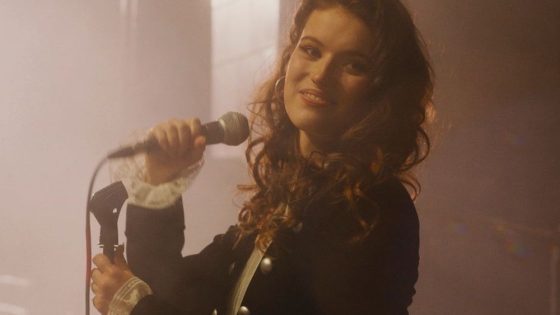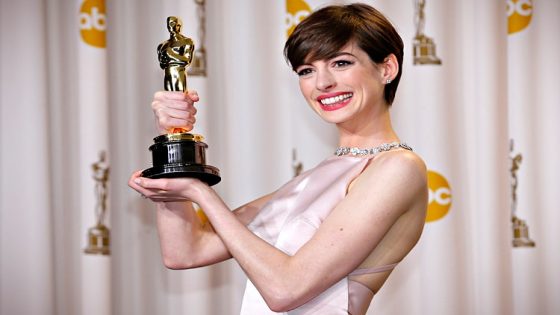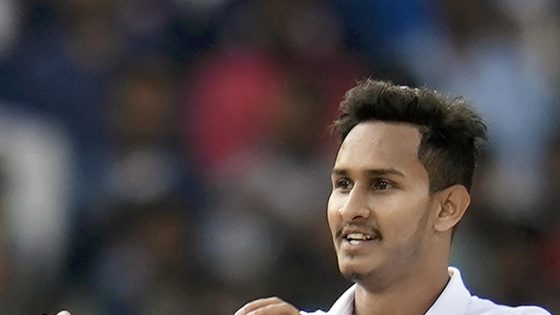The heartrending hook behind “Unsung Hero” isn’t solely discovering how one tight knit family birthed two chart-topping contemporary Christian musical acts, although that is an interesting draw. It’s not necessarily learning how the Aussie expats survived a slew of hardships through togetherness and fortitude. The fascinating angle it adopts is similar to the way Steven Spielberg explored a tumultuous time in his childhood with “The Fablemans,” as Joel Smallbone (who co-wrote and directed with Richard L. Ramsey) also engages with family history, portraying his father grappling with financial and personal crises. The co-directors re-contextualize character-building circumstances, crafting a soul-stirring testament to the power of family and faith in the process.
David Smallbone (Joel Smallbone) is at the top of his game in early 1991. He’s got a great support system at work as one of Australia’s top Christian artist concert promoters, luring in such performers as the heavy metal hair band Stryper. His home life is also thriving, thanks to the efforts of his dedicated, loving wife Helen (Daisy Betts) and their burgeoning brood: Rebecca (Kirrilee Berger), Daniel (Paul Luke Bonenfant), Ben (Tenz McCall), Joel (Diesel La Torraca), Luke (JJ Pantano) and Josh (Angus K. Caldwell). His hard work has given them life’s luxuries, like fancy cars, a sprawling mansion and private schools for his kids. Yet their mettle is about to be tested.
After David fails to sell out an Amy Grant concert due in part to a devastating nationwide recession, he loses all their savings. His backup plan to bring Eddie DeGarmo (Jonathan Jackson) over from the States also vanishes overnight. With no other career options, and with another baby on the way, he comes up with a risky proposal: move the family to the U.S. in hopes of representing an artist friend of his in Nashville. Their journey is fraught with obstacles, from a stressful customs detention to the psychological toll of David’s struggles as a provider. While the Smallbones suck up their pride to courageously face dire situations, they’re only human and there’s always a breaking point — one they must work together to mend.
Smallbone, both behind and in front of the camera, delicately textures his hero, giving him a rich internality. The title seemingly refers to David’s arc of learning humility and acceptance from these pressure-filled tribulations. However, it also applies to the Smallbone matriarch, as the story explores motherhood through this specific lens, such that Helen carries equal thematic importance to her husband. The sequences that show her rising to heartbreaking challenges, spinning sad situations into whimsical adventures for everyone’s benefit (including her own, as a coping mechanism), speak to a classically constructed heroine filled with gumption, sacrifice and humanity. Betts’ understated performance leans into these characteristics as she channels strength and highlights hidden facets deep in the material.
The film works best when trafficking in poignant subtleties that provide a cumulative tear-shedding experience rather than the overt schmaltz which occasionally appears. Lovely grace notes are peppered throughout, from some much-needed tension-release humor (not to be confused with the requisite Vegemite and “Crocodile Dundee” jokes) to the heart-in-throat moment that reveals how Rebecca St. James chose her stage name. (Take that, “Solo: A Star Wars Story”!) Eagle-eyed audiences will find fun spotting a few family members making cameo appearances.
Katherine Tucker’s production design reflects the Smallbones’ evolution — as their familial bonds flourish, their environments change for the better. Cinematographer Johnny Derango discreetly shifts lighting cues in concert with narrative overtones. The frequent golden hour glow represents the presence of David’s perpetually perky father (Terry O’Quinn) even when he’s not on screen, culminating in the genuinely emotional finale’s intersection of a trio of character arcs.
All the siblings offer contributions to their familial sustenance, yet a handful aren’t as fleshed out as they should be given their survival was a psychologically taxing team effort — especially for the younger members thrust into adulthood prematurely. The focus is not only on the parents’ problems, but also on their teenage daughter’s struggle with confidence as a performer and songwriter. And of course, young Luke and Joel, who later in life went on to form the duo For King + Country (and who also provide the heartfelt closing credits ballad), get significant attention, delivering a couple of funny, self-aware bits. However, Ben, Daniel and Josh are relegated to characters defined by their jobs and not by their personalities. They’re left aching for greater incorporation within this testimony.
A finer point could’ve been made about the two sides of the charity coin — the family’s Christmas is saved through the kindness of others, but David feels like a charity case when their wealthy neighbors Jed (Lucas Black) and Kay (Candace Cameron Bure) help out with hefty medical bills. Still, the filmmakers espouse reassuring commentary on achieving the American Dream. More films should acknowledge that throwing money at a problem isn’t always the solution. To glean the amount of meaningful insight as Smallbone clearly demonstrates with this feature, placing himself in his father’s shoes to fully understand a psyche in the throes of turmoil, is quite the dynamic feat. That’s especially important for a faith-based audience who need to see that flaws in our design are what make us human.
Source Agencies



